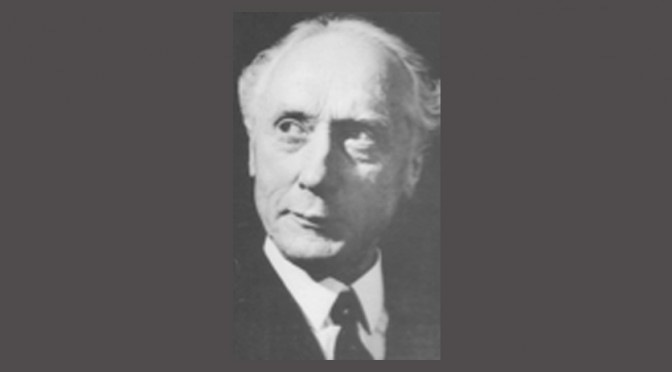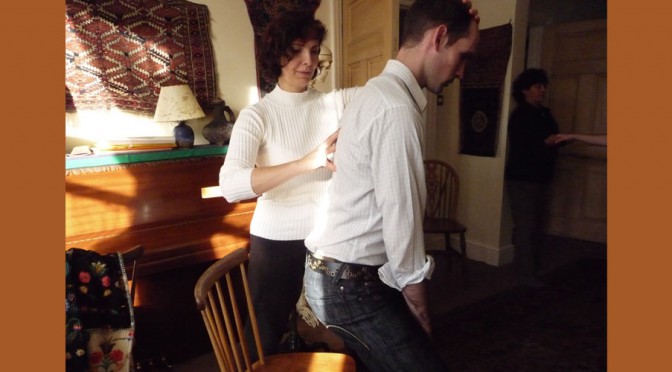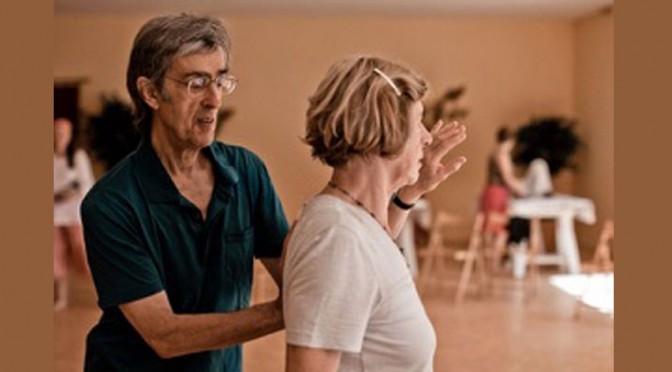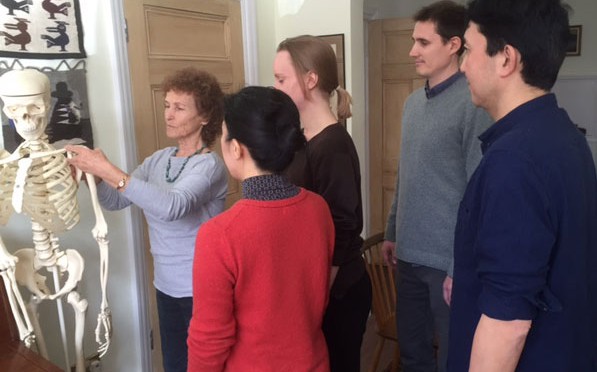The Alexander Technique is a way of becoming more aware of balance, posture and movement in everyday activities. This can bring into consciousness tensions previously unnoticed, and helps us to differentiate between necessary and unnecessary tension and effort. We can then learn to make changes in our habitual patterns of using our bodies and, indeed, our minds.
The Technique, created by F. Matthias Alexander (1869-1955), is commonly supposed to be concerned with posture and relaxation. These days, relaxation is widely recognised as desirable, but it is fast becoming something that one ‘does’ at certain specific times set aside for that purpose, perhaps by diverting the mind onto pleasant topics, or by adopting certain postures and trying to relax all the muscles of the body, or by employing meditative techniques from eastern religions. ‘Good posture’ is also often recognised as desirable, but is usually only regarded as attainable with considerable willpower and strain, and so efforts towards it soon fall by the wayside.
In fact posture is far more complex than just standing or sitting up straight. It could be described as the way we support and balance our bodies against the ever-present pull of gravity as we go about all our daily activities. From Alexander’s own observations, since confirmed by scientific research, it has become apparent that there are natural postural reflexes to organise this support and balance for us, provided that we have the necessary degree of ‘relaxation activity’ to allow these reflexes to work freely.
The mechanisms of support and balance can be seen working beautifully in most small children. But they are very delicate mechanisms and are easily interfered with. The emotional and physical strains accumulated through life can soon become fixed into the body in the form of chronic muscle tensions and patterns of distortion throughout the physical structure. These patterns in turn restrict the workings of the natural postural support mechanisms. Common language expressions such as ‘things are getting me down’ or ‘I’m feeling uptight’ suggest a feeling for how our relationship with gravity is disturbed.
The role of the Alexander teacher is to use guidance with the hands to help unravel the distortions and encourage the natural support reflexes to work properly again. For this to be possible the student must allow themselves to make a pause in their habitual activities and reactions. In this way the tone in the deep core layers of the musculature required to support the body against the downward pull of gravity can be restored, along with the necessary degree of relaxation elsewhere to allow unrestricted movement, breathing, circulation and digestion.
Along with this manual guidance, the Alexander teacher uses verbal instruction to help students become conscious of their own patterns of interference and teaches them to project simple messages from the brain to the body that will help the natural mechanisms of poise to function more freely. It is for this reason that Alexander teachers call their work re-education and describe themselves as teachers.




 Ellie Ribeaux has been teaching the Alexander Technique for over 40 years. Formerly a biology teacher, she has taught and given workshops in the Technique to people from many walks of life in a number of different countries including Denmark, Germany and Israel.
Ellie Ribeaux has been teaching the Alexander Technique for over 40 years. Formerly a biology teacher, she has taught and given workshops in the Technique to people from many walks of life in a number of different countries including Denmark, Germany and Israel. Peter Ribeaux
Peter Ribeaux

 On successful completion of the course students receive a certificate recognised by the Society of Teachers of the Alexander Technique (STAT).
On successful completion of the course students receive a certificate recognised by the Society of Teachers of the Alexander Technique (STAT).